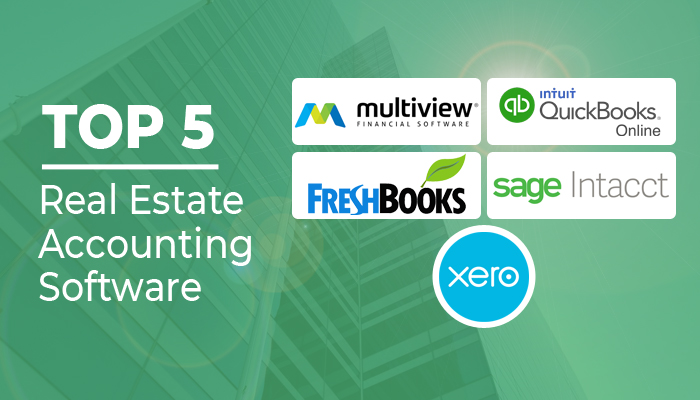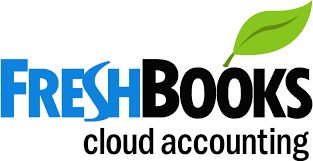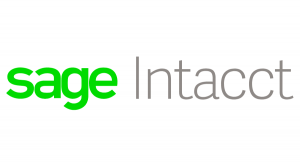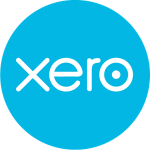
1000+
customers

50+ countries
across the world

Outsourcing leader
since 2008

Technology-driven
services

Stringent
quality processes
5 Real Estate Accounting Software to Stay on Top of Your Finances!
Last updated: 08 Feb, 2024 By Ashish Rana | 6 Minutes Read

Accounting forms the backbone of every business. The way businesses manage accounting processes impacts overall business growth. Realtors have multiple tasks to handle apart from accounting and bookkeeping practices. Manually trying to manage real estate accounting is definitely not a viable option. It will not only consume time but is also prone to errors. This is where real estate accounting software comes into play.
A software can help you analyze the operational scenario, devise refined strategies for business growth, and manage taxes efficiently. According to reports, the global market value in the next eight years for accounting software will be approximately $11.8 billion
• Sage: 2018 report mentioned that 66% of accountants prefer investing and bringing in the use of artificial intelligence
• Forbes: cloud accounting brings down the costs of labor by 50%
Top 5 Accounting Software for Real Estate
1. QuickBooks Online & Enterprise
QuickBooks Online software comprises of helpful real estate accounting tools, regardless of your role in the real estate firm. It offers the flexibility to use the software seamlessly. On the other hand, Quickbooks Enterprise assists mid-sized businesses’ accounting.
One can easily manage inventory workflows, multiple users, transaction data, locations, and more. In the USA, QuickBooks dominated the accounting software market in 2017, with 2.55 million subscribers worldwide.
| Pros | Cons |
| Provides ease of access (multiple locations and different platforms) | Spike in prices overtime |
| Cloud-based functionality | Limited number of users |
| Data is always backed up | ‘Combined reporting’ feature not available |
| Integrates with many third-party applications | Not so effective payroll product |
2. FreshBooks
This is web-based software for accounting. It is a great option for real-estate owners owing to its friendly features. Some of which include time and expense tracking, payments management, invoicing, and more. Auto-payment reminders, branding invoices, and accepting online payments are some of its major features.
| Pros | Cons |
| Efficient with credit card payments and automated reminders | Mobile app doesn’t allow access to reports |
| Has the ability to auto-send invoices and accept auto-payments | Does not work well for larger businesses (needing inventory tracking & vendor management) |
| Sends link for invoices and can tell if and when a client has opened the link | Lacks some of the features that competitors offer |
| Comparatively less expensive | No bank reconciliation |
3. Sage Intacct
The applications of this software provide real-time operational and financial insights, along with the option of automating critical processes.
It helps you effortlessly manage some of the prominent accounting operations like order and cash management, accounts payable and receivable, general ledger, and more.
| Pros | Cons |
| Very flexible & easy to use | Comparatively pricey |
| Offers custom reports | Not as versatile and offers fewer options compared to QB |
| Cloud-based system | No mobile app |
| Provides many features | Additional modules budgeting, interactive reporting cost extra |
4. Multiview Software
This software which has 14 modules for multiple configuration deployment is suitable for any industry type. One can easily manage financial analytics and reporting, accounts payable and receivable, general ledger including budgeting, order entry with fixed assets and invoicing, etc. with this software.
| Pros | Cons |
| Very secure when it comes to data | Difficult to create custom reports |
| Browser based application | Though the customer support solves the issue right away, it is sometimes glitchy |
| Provides good financial solutions | |
| Easy to understand |
5. Xero
Going by the Xero report, companies who use accounting software acquire clients 5 times more than companies who manage accounting manually.
Xero is one of the most preferred accounting software which offers greater features for billing, project management, income, invoice, expense, and payroll. With Xero, you can avail the benefits such as sync with other apps, collaborate with your staff, bookkeeper, and accountant from anywhere in real-time, etc.
Moreover, for industries like real estate, where meticulous financial management is crucial, utilizing real estate accounting services integrated with Xero can further enhance efficiency and accuracy in managing transactions, property portfolios, and client accounts.
| Pros | Cons |
| Very easy to use and intuitive | No notification for paid invoice |
| Cloud-based software | Allows only one payment option per invoice |
| Both the price and quality of the software is good | Limited transactions per month (2000) |
| Great invoicing system | Setup can be a bit confusing |
Top Real Estate Accounting Software Benefits
Excellent Management of Books
Effective bookkeeping means maintaining essential business statistics year-round. This facilitates vital decision-making and enables strategic planning for future growth. In essence, it empowers businesses to thrive.
The best way to achieve this is by using accounting software for real estate as its management features make entering transactions and organizing them effortlessly.
Efficient Payment Processing and Rental Invoicing
The software enables real estate businesses to maintain, run, and achieve payment schedules. It sends payment reminders to the parties who owe money to you, which also boosts the business relationship.
When you use software like QuickBooks Online, you are able to send attractive invoices to renters and vendors like companies for maintenance. All you have to do when the rent is due is type the name of the customer, fill template for the invoice, and send it via email.
Effortless Management of Transactions
For real estate agents, managing transactions is overwhelming due to the number of rental and property transactions they have to take care of. With manual management, things become even tougher, and this is the reason software for accounting for real estate business becomes a necessity and not an option.
With software, you get to automatically track the investments and get to know what changes may occur during a rent hike. Apart from this, you can analyze transactional data to assess what effect a specific transaction may have on your overall transactional affair.
Trouble-Free Organization of Documents
Organizing your documents manually is not only a tedious task but is also associated with loss and error risks. On the contrary, saving and organizing your data in the digital format not only lessens the efforts and time but also lets you discover and keep track of receipts and invoices, tax returns, bank statements, and more.
Error-Free Bank Reconciliation
Bank reconciliation is one of the major accounting tasks that need to be executed perfectly and lets you know of gaps, accounting mistakes, timing delays, bank errors, and more. However, this perfection can only be achieved when you have maintained your books efficiently and regularly.
Accounting software not only helps you maintain your books but also makes the reconciliation process an easy and stress-free affair.
Timely Payroll Processing
When it comes to payroll processing, it is imperative to classify your independent contractors and employees carefully by using the U.S. Department of Labor’s economic realities test which is divided into six parts, learn state-specific rules, and follow the guidelines of the IRS.
Managing all these things manually becomes intense for your real estate accountant and is also prone to error. This is where accounting software helps you streamline the payroll process through proper management and timely execution.
Systematic Management of Property
Managing property in a systematic way is the key to a plain-sailing tax season. However, when you use accounting software, you can automatically adjust calculations of late and additional fees, keep track of income, and make a vendor ledger.
Conclusion
Every industry today is keeping pace with technology due to increased customer demands and strict IRS regulations. The real estate industry is no exception to it.
This brings us to the conclusion that the real estate industry can benefit to a great extent. Largely, by bringing in the use of technology to manage their accounting operations in an efficient and effortless manner.
Depending upon the specific requirements of your real estate business, you can choose the best one for your business.
In case, you do not have an accountant for a real estate business having the technical expertise to stay ahead in the competition; you can avail of accounting outsourcing services from a leading and reputed provider Cogneesol. Get in touch with our experts at [email protected] or simply give us a call at +1 833-313-3143.
Sources:
Pros and Cons references from
Latest Blogs

This site is protected by reCAPTCHA. Google's Privacy Policy
and Terms of Service apply.













